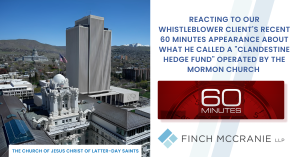FATCA is being implemented in a number of countries outside the U.S., with the result that U.S. individuals who hold foreign bank or financial accounts and have not disclosed these accounts in the U.S., are about to be reported to the IRS.
(This post is by our colleague Richard Rubin of Rubin Law (www.rubinlaw.us), a tax attorney with significant experience in U.S. cross-border matters, including FATCA and U.S. international compliance.)
Bank accounts in countries outside the U.S. can cause headaches when owned by U.S. taxpayers. While owning foreign accounts has always entailed a reporting headache for U.S. taxpayers, the problem has recently heightened as a result of the FATCA legislation that is being implemented in a number of countries outside the U.S.
FATCA is a set of U.S. tax reporting rules that impact U.S. citizens, Green Card holders and other U.S. tax resident individuals who have accounts with non-U.S. banks or financial institutions.
An acronym for the Foreign Account Transactions Compliance Act, FATCA requires banks and financial institutions in countries outside the U.S.to provide the IRS with details of accounts that are owned by U.S. taxpayers. Although the mechanism varies slightly by country, in most countries where FATCA has been implemented banks and financial institutions are required to report these details to the Revenue Authority of that country, and the Revenue Authority is required to pass this information along to the IRS.
Continue reading →
 Whistleblower Lawyer Blog
Whistleblower Lawyer Blog




